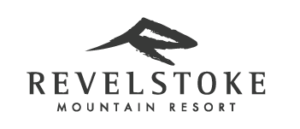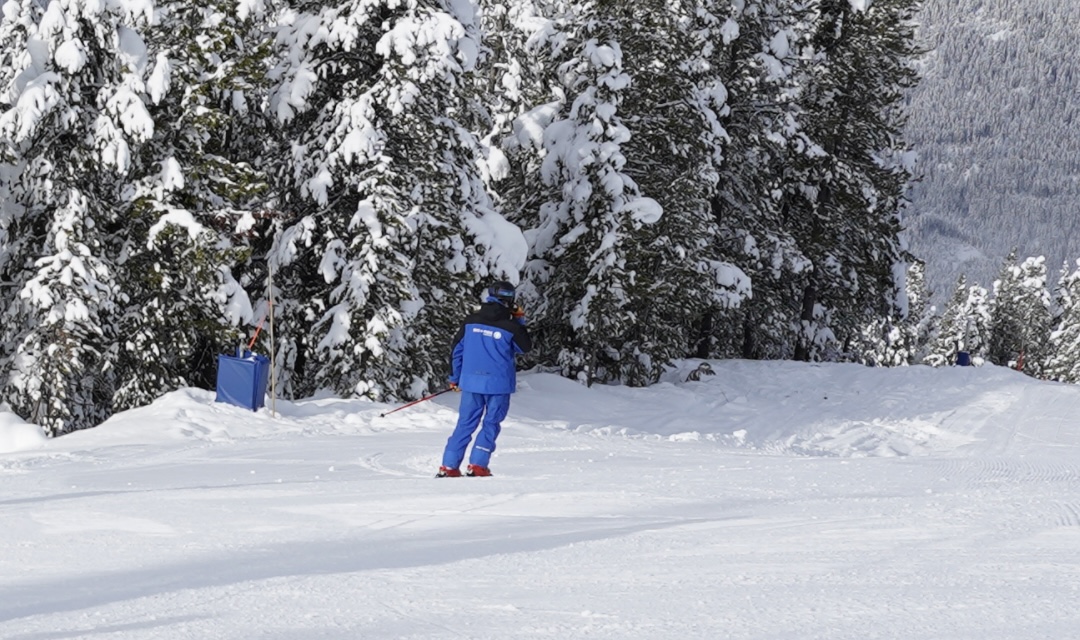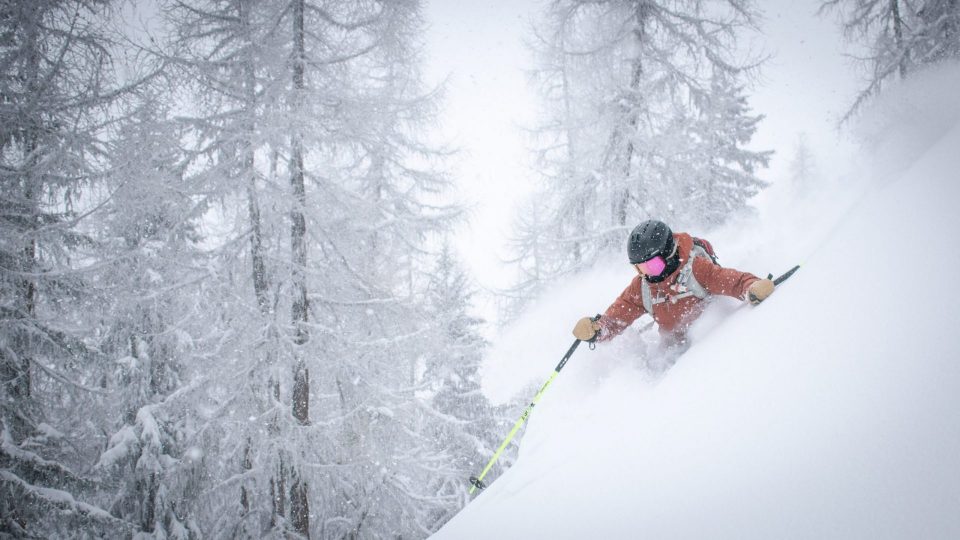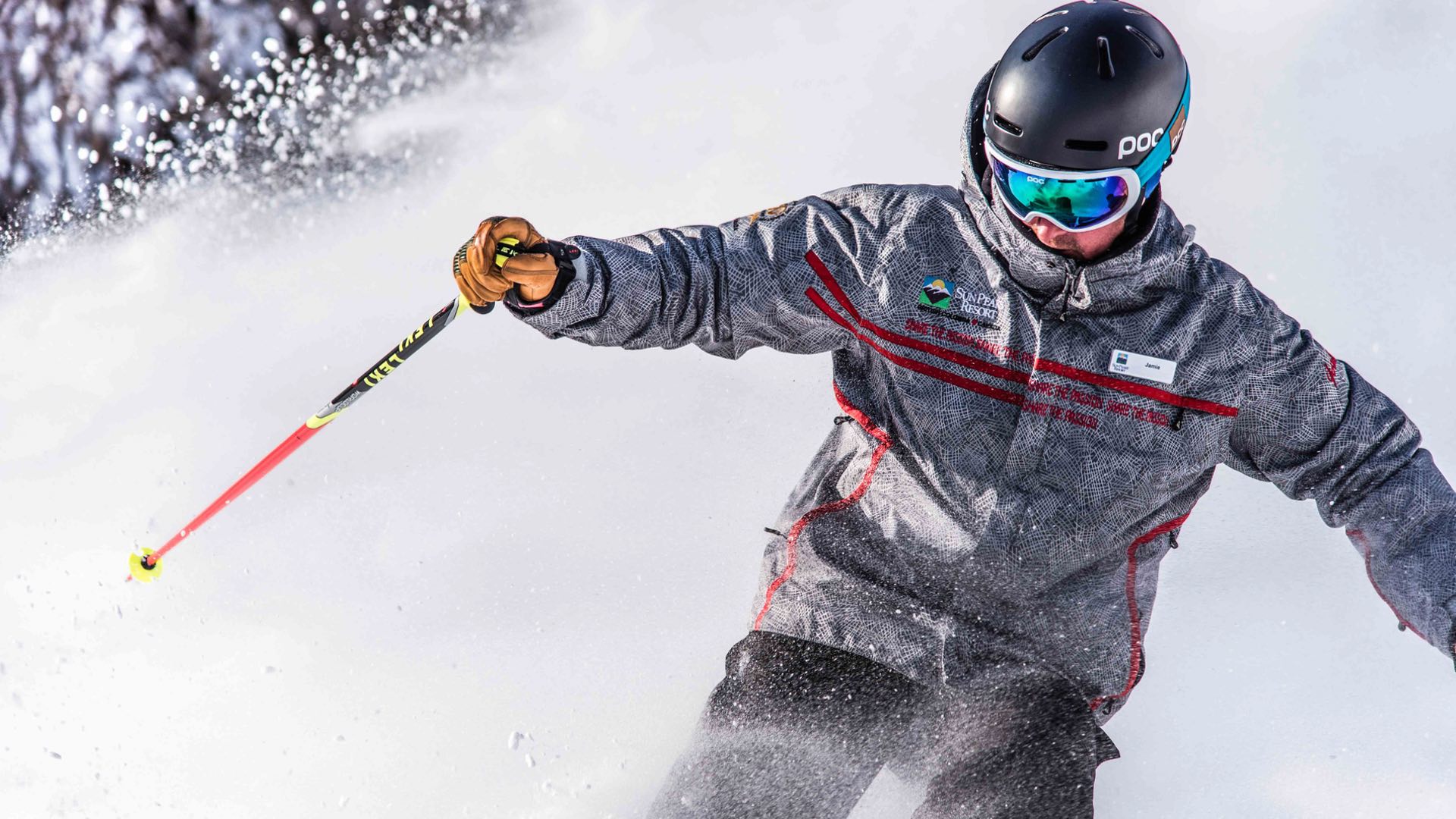Lorem ipsum dolor sit amet, consectetur adipiscing elit. Duis dapibus rutrum vulputate. Mauris sed eros nec est vehicula mattis ac vitae ligula. Maecenas vitae tristique sapien, vitae pellentesque lectus.
Getting A Ski Instructor Job After Your Course Finishes

Guide Summary
Before taking the next steps after your instructor course and hoping to secure your first job as a ski instructor with a ski school, it’s essential to take care of some of the finer details, research, and plan! Whether you need to polish up your CV and cover letter, obtain visas, or know where to look, we can help.
On successful completion of your ski instructor course, you’re hopefully now qualified as an instructor. No doubt, you’re seeking the next step and hope to secure a job working as a ski instructor so you can start earning and perhaps pursue this as a new career. You’re about to enter a competitive jobs market, competing against instructors who have more certification and experience than you do, so it’s important to pay attention to the fine details that will help you secure that first job. Do your research on where you hope to work, put your CV and covering letter in order and utilise the experience and expertise of others. We can help you secure that first job!
Prepare Your CV & Covering Letter
First things first, you’ve got to get your CV in order. It’s imperative to tailor your CV so it’s specific to working as a ski instructor. Without trying to dishearten you, it’s worth mentioning that you’re entering a competitive market. Ski schools only hire a certain number of ski instructors per season, and with so many competing for these roles, you must do things to stand out from the rest. Finding work once you’re more experienced and qualified will be much easier, especially when you build connections, but for now, the details matter.
Qualifications
After completing your course, you will likely hold more than one qualification. Make sure to include them all. This might be a CSIA Level 2, Avalanche Safety Training, Race Coach, ACA 1, etc. You can also list any other relevant qualifications. Are you qualified as an instructor in another sport, for example?
Training and Education
What course did you do? Was it a fast-track 8-week Level 1 & 2, or what is a seasonal long-level 1-3? Go into detail about your course, the amount of training you did, things you learnt and where your course was held? Did any moments stand out? If you lack work experience, the more details you can include about your training, the better. You want to show potential employers you have the required training and education, and are committed to further education. Training is a big part of a ski school’s culture.
References
Your trainers are usually very well respected in the ski industry, typically with years experience working in ski schools around the world. Don’t be afraid to name drop. If you’re able to secure a positive reference from your trainers or perhaps even the ski school manager, it can go a long way in helping you secure a job. You cannot underestimate the value of word of mouth in the ski industry. You’ll come to learn it’s a very small world. If so-and-so says you’re good, people listen. When you apply, attach a positive reference to your CV or cover letter.
Previous Experience
We appreciate that you don’t have experience as a ski instructor just yet. However, if you have any teaching or coaching experience, ensure you include it. This may be experience working as a football coach back home, a swim instructor, or perhaps being involved with your local school delivering extra tuition. Any relevant experience in coaching and instructing can be included. Remember, being a good ski instructor is just as much about good communication and being personable. Previous experience teaching, whether it’s skiing or not, demonstrates that you have these skills.
Why Do You Want To Be A Ski Instructor?
Include this in your covering letter. Why do you want to be a ski instructor? What inspired you about your course that has encouraged you to take it a step further? Be as specific as you can – don’t just say it’s because you like skiing, or the mountains. Is it the connection with the people you work with? Do you have a goal to pursue it as a career? This shows you are committed to the work and will deliver great lessons to guests. Are you planning to relocate to the mountains and want a job that keeps you active and outdoors? Ski schools want people who are passionate about the work and can bring more to the mountains. Do you want a Guaranteed Job Placement? Unlock Your Dream Career as a Paid Ski Instructor Before Places Run Out!
Do you want to take a shot at your Level 3 during the season? Do you plan to become a level 4 instructor and make it a career? Do you want to become dual certified or develop the skills to teach people in more challenging terrain? Establishing clear goals and explaining how that specific resort can help you demonstrates that you have a vision and will be committed to professional development.
Do Your Research
Before applying to a resort, we recommend doing your research first. If you can secure an interview, it’s essential to have some knowledge of the resort and why you feel you’d be a good fit. You don’t have to know everything, and it’s great to ask questions during your interview, but make sure you’re prepared to answer a question ‘Why do you want to work here?’
Chase Winter In The Southern Hemisphere
If you’ve just finished your course in the northern hemisphere, and you don’t have the patience to wait until snow falls again in December, you do have the option to head to the southern hemisphere for skiing in Australia, New Zealand and Chile. Chasing The Winter & Skiing In The Southern Hemisphere This Summer. Australia and New Zealand are fantastic options; both countries are relatively accessible for most, offering working holiday visas. Most resorts in Australia and New Zealand also have large ski schools. The skiing in Australia and New Zealand has its challenges, most notably with variable snow conditions and weather; however, the culture within these ski schools creates a really positive environment for you to progress as an instructor. Ski schools in the southern hemisphere can recruit some of the most experienced and qualified pros in the industry, which means great mentors and educators surround you. Working in the southern hemisphere also enables you to fast-track your career with back-to-back seasons. You can gain certification and experience far quicker than someone who only works in the northern hemisphere. Check out Queenstown in New Zealand, or the snowy mountains in New South Wales, Australia.

Take Another Course
You do, of course, have the option to further your education and certification before getting your first job. You can always take another course, either to train towards the next level of certification, or you may choose to certify in a second discipline. As previously mentioned, the more education and certification you have, the more attractive you’ll become to prospective employers. This may be useful for those who are perhaps not yet in a position to commit the time and resources to a full winter season, but may have enough time to squeeze in a month-long training program.
Work in the Northern Hemisphere
Compared to the melting pot and competition of the southern hemisphere ski schools, the benefit of working in the northern hemisphere is that you have far more places and ski schools to choose from. You can work in the US, Canada, Europe, Japan, Scandinavia, and more. With an internationally recognised certification, you have the option to take your career all over the world. There are some barriers to entry; for example, the criteria to work in France as an instructor is incredibly high, and only the most qualified and experienced meet the requirements to work there. Other countries in Europe also set high eligibility criteria. Second, you must be able to obtain working rights for the country in which you wish to work. Japan has some of the best snow in the world and is quickly becoming one of the most popular destinations for ski holidays, with a growing market of wealthy clients and exclusive, private ski schools. The US and Europe are renowned for having the best resorts in the world, and as a result, the earning potential for instructors working there is also incredibly attractive. You may also look at Canada, home to some of the most picturesque landscapes in the world.
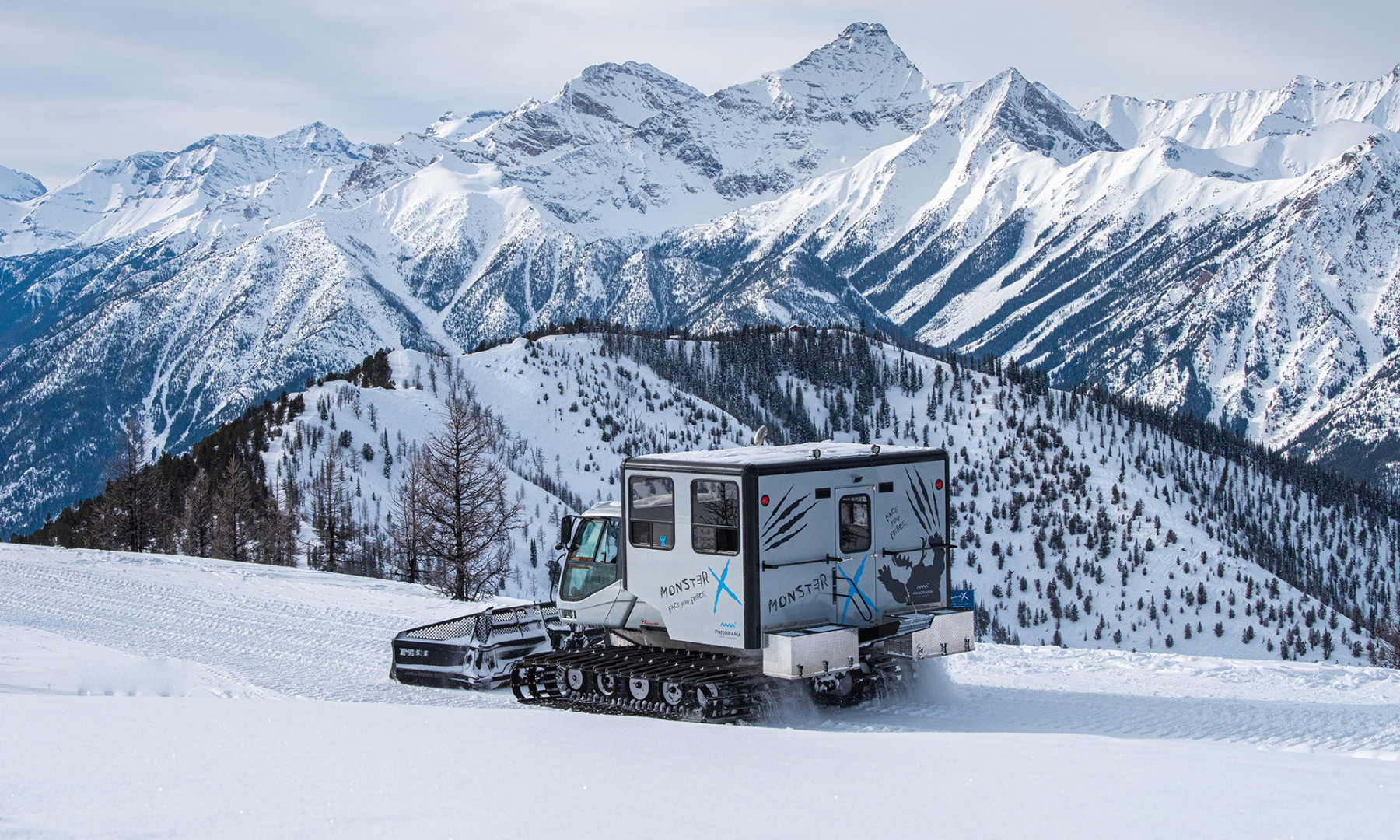
Work At Your Local Indoor/Dry Slope
If you’re not quite ready or perhaps don’t have the time to commit to a full season, you may wish to work at your local indoor/dry slope. We appreciate that it’s not the same as working in the mountains, but it does give you invaluable real-life experience teaching skiing. The more hours you can put under your belt, the more attractive you’ll be to ski schools in the future. These places are also fairly flexible when it comes to hours, which is perfect if you’re only able to commit to one day a week, for example. After spending a winter here, you’ll have more weight to your CV and be in a much stronger position when applying to ski schools.
Visas, Accommodation and Insurance
Visas
Unfortunately, securing a job with a ski school is just one of several things to do before you can jump on a plane. Before applying to a ski school, check your eligibility for working rights in this country. For example, British citizens can no longer work freely in the European Union and must obtain the appropriate visa. The US is also notoriously challenging to secure working rights and often only issues them to the most experienced and qualified. You may benefit from student visas or other types of visas. But bear in mind the US doesn’t currently offer a working holiday like Canada does for British citizens. IEC Working Visa
As you progress and gain certification, many countries and ski schools can offer specialist visas or sponsored visas, which allow you to work for the winter seasons. Still, these are typically issued once an instructor has obtained Level 3 certification or an international equivalent.
If you’re unsure of your working rights for a particular country, don’t hesitate to get in touch with us for information. It’s also essential that you start early with this process. Visa applications can take several months, which is why you can’t wait until the last moment.
Insurance
If you can secure both a job and working rights, two other key pieces to the jigsaw are insurance and accommodation. Ensure you have valid and comprehensive health and travel insurance before you head off. Our advice: Don’t go cheap on this either, and go for a reputable provider with good reviews. We hope you’ll never need it, but you’ll thank yourself should you ever need to fall on it. Do I Need Insurance for my Ski/Snowboard Instructor Course?
Accommodation
This may have been a conversation during your hiring process, as many ski schools can offer staff accommodation to their new hires. Make sure you ask the question if you haven’t already. If you’re fortunate to work with friends, you may team up and secure shared private accommodation. This is an affordable option for most instructors and far less expensive than renting privately on your own. Similarly to visas, start your accommodation searches early. There are a limited number of affordable rentals in ski towns, and they are quickly snapped up, so start your searches early.
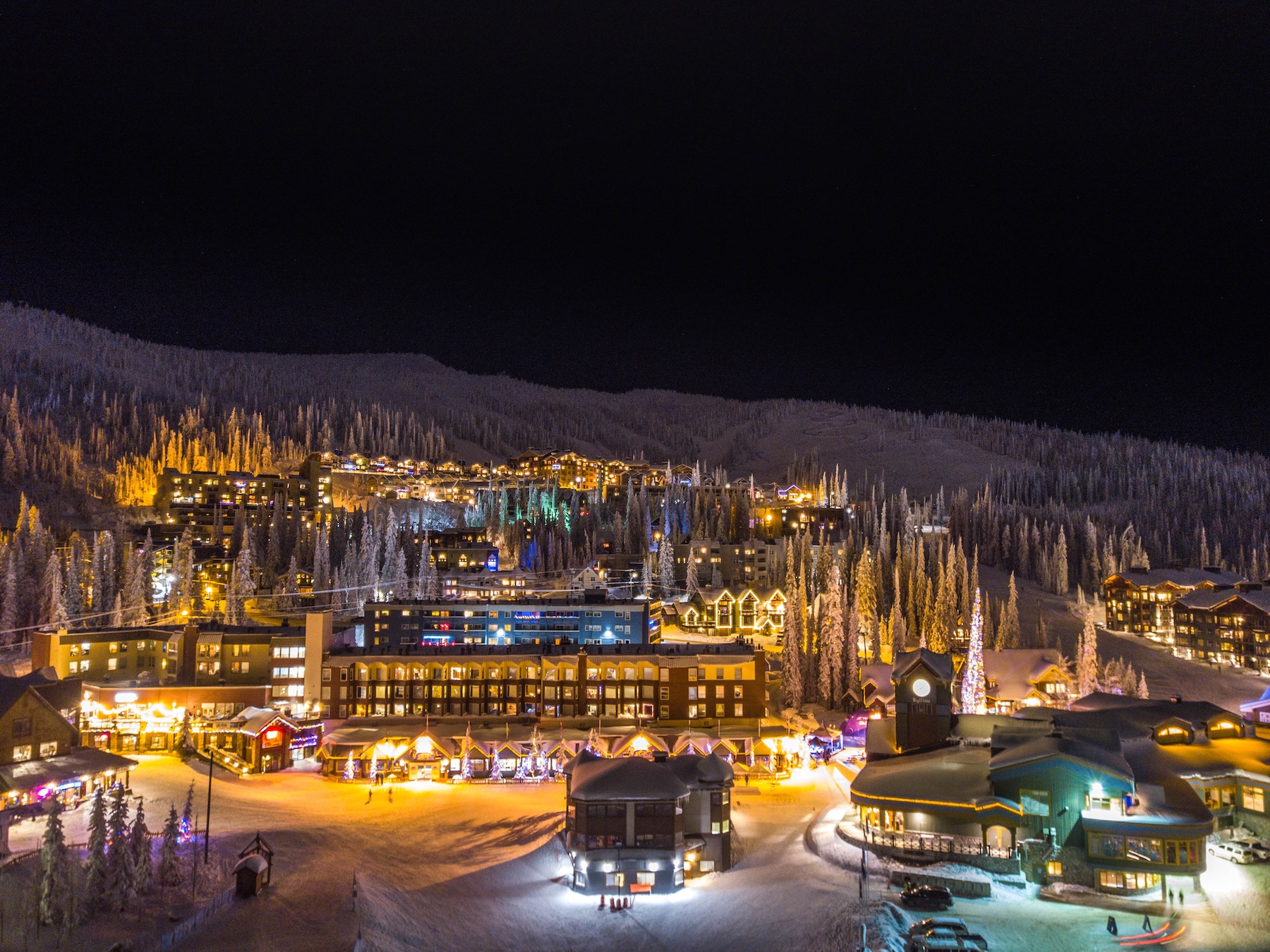
FAQs
The most common problem we see with a CV and covering letter is not tailoring it to make it specific to the role of a ski instructor. For many roles, you can use quite a generic CV, but when applying to become a ski instructor it’s important to make specific skills and attributes stand out. When writing a cover letter, ensure you reference the resort/ski school you’re applying to and why you want to work for them.
This is probably very subjective and depends on the individual and their expectations for work and the overall experience. Whistler is by far the largest ski school, with several highly certified and experienced pros. If you’d prefer a smaller ski school with a close-knit group, several resorts offer this. If you want to work somewhere with amazing terrain and great skiing on days off, you may pick a resort like Revelstoke or Kicking Horse.
Unfortunately, this decision may not always be your choice. If you’re unable to obtain working rights in the EU, then you may need to explore other options. Canada does offer a working holiday visa for most nationalities. Your earning potential is higher in Europe, but bear in mind that as a level 1, your hourly rate won’t be that high, and European ski resorts tend to have a high cost of living. Canada is an excellent option for most new instructors, and the CSIA and PSIC both offer accessible pathways to further your education and certification.
Regardless of where you work, a brand new level 1 can probably expect to make enough to cover their living costs, such as food and accommodations, and may be fortunate enough to save a little extra throughout the season. Don’t expect to earn big money yet; that will come with more time and certification.


